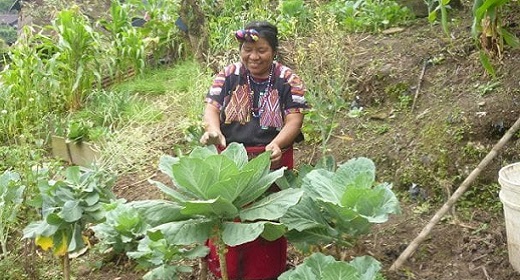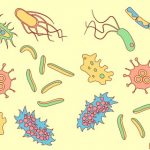The Ixil people of Gutemala have experienced deep persecution, poverty, and worse for hundreds of years…
Yet they remain strong. They are dependent on the coffee trade and, through changes in production and economic diversification, are starting to see improved incomes and improved living conditions.
I belong to an NGO, The Coffee Trust, that works in the region. I’m here to tell you more about the role coffee plays in the lives of these people.
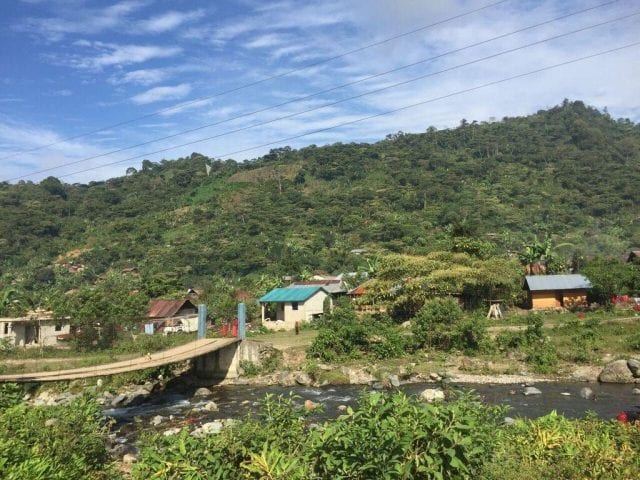
Chel, a small village in the Ixil region of Guatemala. Credit: The Coffee Trust
Where Is The Ixil Region?
The Ixil Region is often called the Ixil Triangle, a phrase coined by the Guatemalan military due to the fierce fighting that occurred in the three main towns, San Gaspar Chajul, Santa Maria Nebaj, and San Juan Cotzal.
The region lies in the mountainous northern highlands of Guatemala. Even today, it’s difficult to get to. This remoteness has allowed the region to remain deeply indigenous. Many of the Mayan descendants speak the regional dialect, Ixil, and know little Spanish.
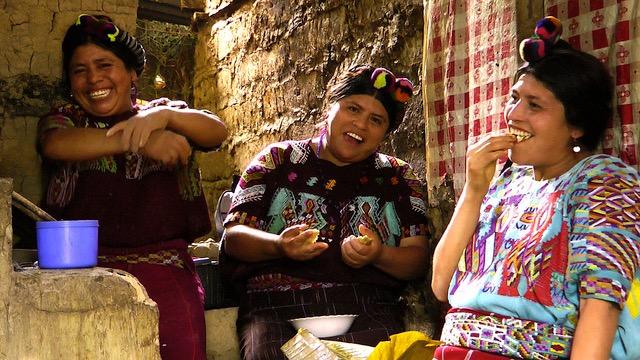
Women participate in a cooking class in the Sotzil community. Credit: Kelly Kowalski
A History of Persecution
The Spanish Conquistadors first arrived in Ixil in 1530, and after a brutal siege burned down the city of Nebaj and killed many Ixil people from the surrounding area. Others escaped death only to be enslaved.
Nearly 300 years later, in 1821, Guatemala achieved independence. But many of the Ixil people were used as cheap labor on the coasts and in Guatemala City.
This inequality culminated in a 36-year civil war that wracked Guatemala in the 1980s and 90s. Indigenous populatations suffered greatly. Between March 1982 and August 1983, Guatemalan dictator José Efraín Ríos Montt – concerned about rebel activity in the region – committed genocide against the Ixil people. The Guatemalan Human Rights Commission/USA reports that between 1981 and 1983, 70 to 90% of Ixil’s villages were destroyed and about 5.5% of the population perished.
Ixil emerged impoverished and scarred from the war. They turned to coffee, which was already the region’s main source of income. In 1988, forty farmers banded together to form the fairtrade, organic coffee cooperative Asociation Chajulense. They opened a pharmacy and grocery store, and purchased a corn mill.
But the emergence of Asociacion Chajulense was not enough to bring the region to prosperity. Income from coffee is simply not enough to sustain a region.
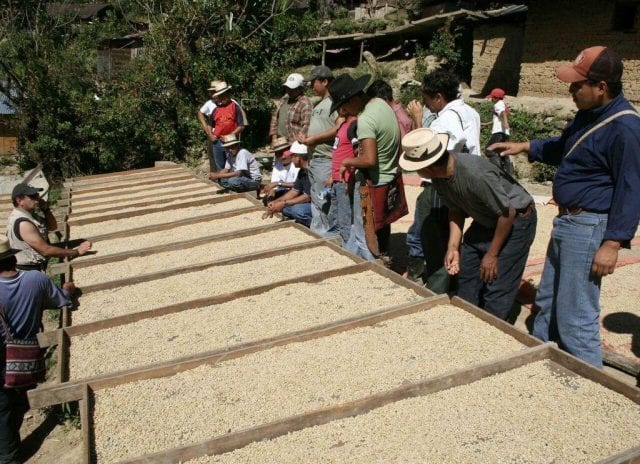
Asociacion Chajulense coffee farmers gather around drying beds. Credit: The Coffee Trust
The Life of a Coffee Farmer and Their Family
Poverty is still the norm in Ixil: non-profit Limitless Horizons Ixil reports that most of the population of Chajul earn less than $2 per day. This is consistent across Ixil, and has been backed up by a diagnostic The Coffee Trust ran in 2012.
The impact of this has been widespread. In Chajul, Limitless Horizons Ixil report that only 11% of children graduate from middle school – and the number is much lower among children living in the more rural villages.
Worse than lack of education, is the widespread malnutrition among children. A lack of enough food and protein is a major contributor to this. Only 35% of Ixil families consume meat or protein regularly. Fewer than half have access to eggs, beans, vegetables, or fruit once per week or less. Instead, corn makes up the majority of the Ixil diet.
Contributing to further health issues, 71% of homes are often equipped with open cooking fires or poorly ventilated stoves, which lead to respiratory illnesses.
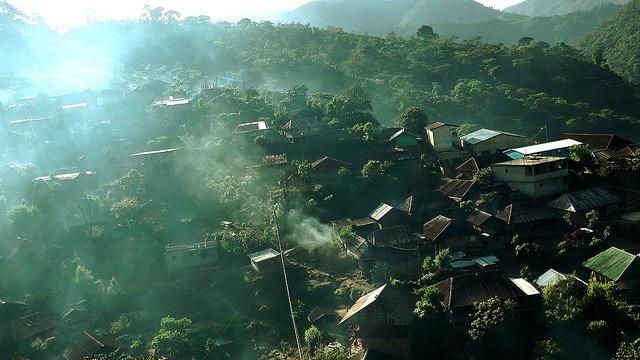
Morning kitchen fires in the Sotzil community in the Ixil region. Credit: Kelly Kowalski
The Role of Coffee in The Ixil Region
Coffee is a time-consuming crop, especially for Ixil farmers who often have to hike for hours to their small plots. But they are dependent on it.
For years, farmers grew corn and just a few beans to feed their families. With the introduction of a cash cropping economy, they had lost the ancient agricultural knowledge of their ancestors. The income from coffee was not enough to offset the loss of more efficient subsistence farming, and each year most families experience los meses flacos – the lean months – when income runs out.
When la roya – coffee leaf rust – hit, the Ixil people were left particularly vulnerable. But they worked to find organic solutions to the fungi that had decimated 75% of their crop. We work with Asociacion Chajulense to train industry leaders who can spread awareness of farming techniques, as well as methods for economic diversification.
Today, 1518 producers belong to the association. 90% produce organic coffee, allowing them to see increased incomes from certification. They produce Caturra, Catuai, and Bourbon at 1,100-1,800 m.a.s.l., and the terroir tends to give it red fruit and cocoa notes.
What’s more, women are growing small horticultural gardens to better feed their families and a chicken-raising project is underway to ensure that families eat eggs on a weekly basis. They can also earn additional income from the sale of eggs to others.
Even through Ixil’s violent history and current depth of poverty, the people are working their way towards a more promising future. Coffee has a vital role to play in that.
The Coffee Trust projects that, within the next five years, all the programs we assist with will be sustainable on their own. Ixil will have transformed from a region devastated by migration and civil war in need of support into a place where farmers from across Central America can come to learn.







